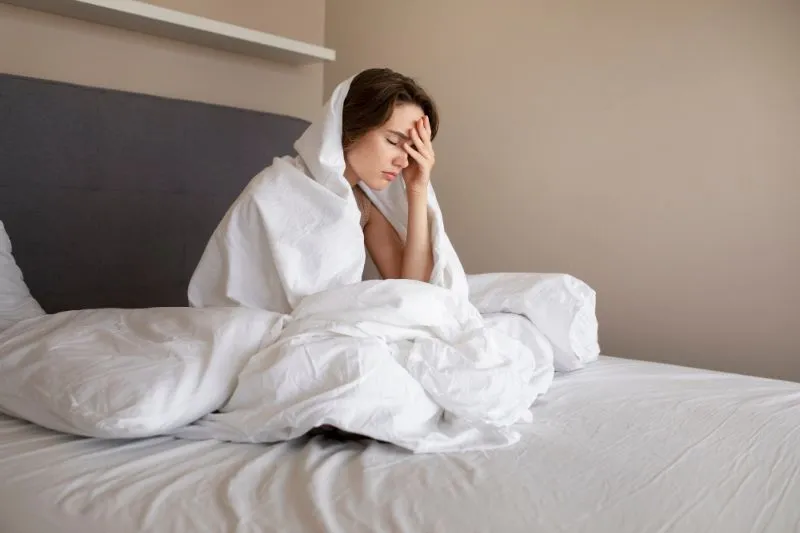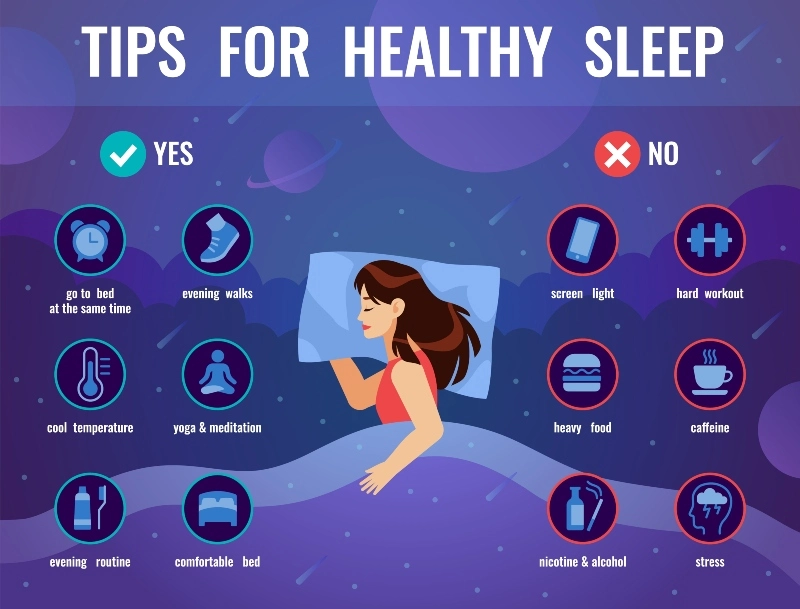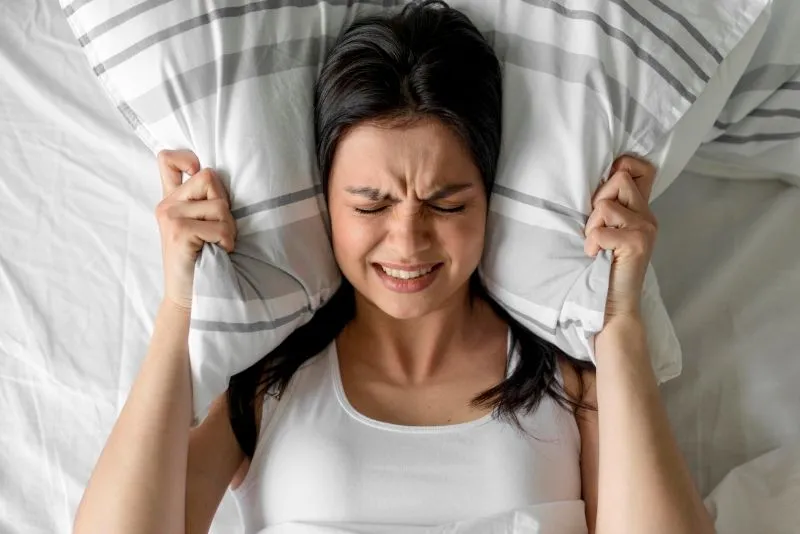Do you often find yourself struggling to get a good night's sleep? Do you feel tired, irritable, and unable to concentrate during the day? These are just a few of the symptoms that can be associated with sleep disorders. Sleep disorders not only impact your physical health but can also have detrimental effects on your mental well-being. In this comprehensive blog, we will delve into the connection between sleep disorders and mental health, explore the impact of sleep disorders on mood, anxiety, and cognitive function, discuss different types of sleep disorders, and provide an overview of the diagnostic process and treatment options available.
Prevalence and Impact of Sleep Disorders
According to the National Sleep Foundation, approximately 50-70 million adults in the United States suffer from sleep disorders. This high prevalence highlights the importance of recognizing and addressing sleep disorders. Insufficient sleep can lead to fatigue, difficulty concentrating, and poor decision-making, adversely affecting the performance of daily activities, work, school, or social life. Moreover, sleep deficiency has been linked to various physical health conditions, such as obesity, diabetes, and cardiovascular disease.
Understanding Sleep Disorders
Sleep disorders encompass a diverse group of conditions that significantly impact sleep quality, duration, and timing. They can arise from various factors, including lifestyle habits, underlying medical and psychiatric conditions, and external stressors. It's important to note that sleep disorders are not solely caused by one factor but often result from a combination of influences.
Insomnia is one of the most prevalent sleep disorders and involves difficulty falling asleep, staying asleep, or experiencing non-restorative sleep. It can be caused by factors such as anxiety, depression, chronic pain, medication side effects, or lifestyle habits like excessive caffeine intake or irregular sleep schedules. Treatment approaches for insomnia may include cognitive-behavioral therapy (CBT), sleep hygiene practices, and, in some cases, medication.
Sleep apnea is characterized by recurring pauses in breathing during sleep, leading to fragmented sleep and decreased oxygen levels in the body. This disorder can be caused by the collapse of the upper airway or a lack of proper signaling from the brain to the muscles involved in breathing. Obstructive sleep apnea (OSA) is the most common type, often associated with obesity, aging, and anatomical factors. Continuous positive airway pressure (CPAP) therapy, oral appliances, weight loss, and surgery are among the treatment options available for sleep apnea.
Restless leg syndrome is characterized by an uncomfortable sensation in the legs, often accompanied by an irresistible urge to move them. This sensation typically occurs during rest or inactivity, particularly in the evening and at night. The exact cause of restless leg syndrome is not fully understood, but it is believed to involve a disruption in the brain's dopamine pathways. Treatment options include lifestyle modifications, medications that affect dopamine levels, and addressing any underlying medical conditions contributing to the symptoms.
Narcolepsy is a neurological disorder characterized by excessive daytime sleepiness, sudden loss of muscle tone (cataplexy), hallucinations, and disrupted sleep patterns. It is caused by a deficiency of a brain chemical called hypocretin or orexin, which regulates wakefulness. Treatment for narcolepsy may involve medication to manage symptoms, lifestyle adjustments, and scheduled naps throughout the day.
In addition to the mentioned sleep disorders, several other common sleep disorders are worth exploring. These include parasomnias (sleepwalking, night terrors), circadian rhythm disorders, and hypersomnias (excessive daytime sleepiness). These disorders can further contribute to sleep disturbances and impact overall well-being.
Parasomnias involve abnormal behaviors or experiences during sleep. Sleepwalking, for example, occurs when an individual gets out of bed and engages in activities while still asleep. Night terrors are characterized by intense feelings of fear or terror during sleep, often accompanied by screaming or thrashing. Circadian rhythm disorders occur when there is a misalignment between an individual's internal body clock and the external environment, leading to difficulty falling asleep or waking up at the desired times. Hypersomnias, such as idiopathic hypersomnia or Kleine-Levin syndrome, involves excessive daytime sleepiness, prolonged sleep duration, or recurring episodes of excessive sleep.
It's important to consult a healthcare professional if you suspect you may have a sleep disorder. They can conduct a thorough evaluation, including a detailed medical history, physical examination, and potentially a sleep study (polysomnography), to accurately diagnose the specific sleep disorder and determine the most appropriate treatment options. Individuals can take proactive steps toward improving their sleep quality and overall well-being by understanding the distinct causes, symptoms, and available treatments for different sleep disorders.

Sleep Disorders and Mental Health
There exists a bidirectional relationship between sleep and mental health. Mental health conditions such as depression, anxiety, and bipolar disorder can disrupt the quality and duration of sleep. Conversely, sleep disorders can worsen mental health conditions and increase the risk of developing psychiatric disorders. For instance, insomnia has been consistently linked to anxiety and depression. Chronic insomnia can lead to a negative thinking pattern, perpetuating anxiety and depression symptoms. Sleep apnea, characterized by recurrent breathing interruptions during sleep, has been associated with an increased risk of depression and cognitive decline. Restless leg syndrome, which involves an intense urge to move the legs accompanied by discomfort, has been connected to anxiety, depression, and reduced quality of life.
Diagnostic Process and Treatment Approaches
If you suspect you have a sleep disorder, it is important to seek professional help to undergo a comprehensive diagnostic process for an accurate diagnosis and effective management. This process often involves a combination of assessments, including the use of screening questionnaires, tests, physical examinations, and consultations with healthcare professionals specializing in sleep disorders.
Screening questionnaires and tests can provide valuable insights into the nature and severity of sleep disturbances. These assessments can be conducted at home and in a sleep laboratory setting. Home-based tests like portable sleep monitors can provide initial information about sleep quality and breathing patterns. In-lab tests, such as polysomnography, involve spending a night at a sleep center where various parameters are monitored, including brain activity, eye movements, heart rate, breathing patterns, and oxygen levels. These tests help professionals gather comprehensive data to aid in accurately diagnosing specific sleep disorders.
The diagnostic process may also include a psychiatric evaluation to assess any underlying mental health conditions contributing to sleep disturbances. This evaluation helps to identify potential connections between sleep disorders and psychiatric disorders, ensuring a holistic approach to treatment.
Once a sleep disorder is properly identified, treatment approaches can be tailored to address the specific needs of the individual. Evidence-based treatment options for sleep disorders encompass various modalities, including medication, therapy, and lifestyle changes.
Cognitive-behavioral therapy (CBT) is a widely recognized psychological treatment for insomnia. It focuses on identifying and modifying the thoughts and behaviors contributing to sleep difficulties, promoting healthier sleep patterns, and addressing underlying factors such as anxiety or stress.
Continuous positive airway pressure (CPAP) therapy is commonly prescribed in cases of sleep apnea. CPAP involves wearing a mask that delivers pressurized air, helping to keep the airway open during sleep and ensuring adequate oxygenation. Other treatment modalities for sleep apnea may include dental devices that help reposition the jaw, surgery to address anatomical abnormalities, or positional therapy that encourages specific sleep positions to improve airflow.
The choice of treatment modality depends on the specific sleep disorder, its severity, and individual considerations. Healthcare professionals specialized in sleep medicine can provide expert guidance on the most appropriate treatment approach based on comprehensive evaluation and diagnosis.
It is important to note that lifestyle changes are crucial in managing sleep disorders. These changes may include adopting healthy sleep hygiene practices, implementing relaxation techniques, optimizing the sleep environment, and adjusting daily routines to prioritize sleep.
Individuals with sleep disorders can achieve improved sleep quality, better overall health, and enhanced quality of life by integrating a multidimensional approach that incorporates diagnostic assessments, tailored treatments, and lifestyle modifications. Consulting with healthcare professionals in sleep medicine ensures that individuals receive the most comprehensive care and support.

Sleep Hygiene and Mental Health
Maintaining healthy sleep habits, known as sleep hygiene, can significantly improve sleep quality and reduce the risk of developing sleep disorders. Some key sleep hygiene practices include:
Stick to a consistent sleep schedule: Go to bed and wake up at the same time every day, even on weekends.
Create a sleep-friendly environment: Make your bedroom quiet, dark, cool, and comfortable.
Limit exposure to stimulating activities before bedtime: Avoid screens (TV, smartphones, tablets) at least an hour before bed, as the blue light emitted can interfere with sleep.
Avoid stimulants: Limit caffeine and alcohol consumption, particularly close to bedtime, as they can disrupt sleep patterns.
Engage in relaxation techniques: Incorporate practices such as mindfulness meditation, deep breathing exercises, or gentle stretching before bed to calm the mind and prepare for sleep.
Establish a bedtime routine: Engaging in relaxing activities before bed, such as reading a book or taking a warm bath, can signal to your body that it's time to wind down.
Addressing Sleep Disorders in Mental Health Treatment
Integrating sleep assessment and management into mental health care is crucial for improving treatment outcomes and optimizing overall well-being. Recognizing the intricate relationship between sleep and mental health, healthcare professionals should routinely screen for sleep difficulties and actively inquire about sleep patterns when evaluating patients with psychiatric conditions.
By incorporating sleep assessment into the comprehensive evaluation process, mental health professionals can gain valuable insights into the potential impact of sleep disorders on mental health symptoms and treatment response. This collaborative approach allows for a more holistic understanding of the individual's overall health and facilitates the development of tailored treatment plans.
Multidisciplinary care, involving a collaborative effort between mental health professionals and sleep specialists, can provide optimal management of both mental health and sleep disorders. This collaborative approach ensures that individuals receive comprehensive care that addresses all aspects of their well-being. Mental health professionals can work closely with sleep specialists to develop integrated treatment strategies that target both the psychiatric condition and the underlying sleep disorder.
Addressing sleep disorders alongside mental health conditions can significantly enhance the effectiveness of psychiatric treatment. Sleep disturbances can exacerbate psychiatric symptoms and impair the individual's ability to respond to treatment interventions. By identifying and treating sleep disorders, mental health professionals can improve sleep quality, reduce symptom burden, and enhance treatment outcomes.
Furthermore, improving sleep quality can have a positive ripple effect on overall mental well-being. Restorative sleep is vital in emotional regulation, cognitive function, and overall resilience. By addressing sleep disorders, mental health professionals contribute to the foundation of optimal mental health and support individuals in their journey toward recovery.
Incorporating sleep assessment, management, and collaboration with sleep specialists in mental health treatment demonstrates a comprehensive and patient-centered approach. By addressing both sleep disorders and mental health conditions concurrently, healthcare professionals can provide individuals with the most effective and holistic care, promoting better mental health outcomes and overall quality of life.
Conclusion
Sleep disorders can significantly impact an individual's physical and mental health, making it crucial to recognize the signs and seek professional help for accurate diagnosis and appropriate treatment. By implementing healthy sleep hygiene practices, adhering to regular sleep schedules, and incorporating relaxation techniques, individuals can significantly improve their sleep quality and reduce the risk of developing sleep disorders. Addressing sleep disorders in mental health treatment and incorporating sleep assessment into psychiatric evaluations can optimize treatment outcomes and overall well-being. Collaborative care between mental health professionals and sleep specialists ensures a comprehensive approach that targets both mental health conditions and underlying sleep disturbances. Cura4U offers specialized clinics dedicated to sleep disorders and neurology at SleepRx and NeuroX Clinic, respectively. SleepRx provides comprehensive evaluation, diagnosis, and personalized treatment plans for various sleep disorders, while NeuroX Clinic addresses neurological conditions impacting sleep and mental health. With a focus on evidence-based approaches and patient-centered care, the clinics aim to improve sleep quality, overall well-being, and mental health. Remember, sleep is a fundamental pillar of well-being, and addressing sleep disorders is an important step toward achieving optimal mental health and overall quality of life.
Our clinical experts continually monitor the health and medical content posted on CURA4U, and we update our blogs and articles when new information becomes available. Last reviewed by Dr. Tayyab Saeed Akhter on March 20th, 2024.
References
Sleep Disorders – Common Types, Symptoms, Treatments | Sleep Foundation- https://www.sleepfoundation.org/sleep-disorders
Sleep Disorders | MedlinePlus- https://medlineplus.gov/sleepdisorders.html
Sleep Disorders: In Depth | NCCIH (nih.gov)- https://www.nccih.nih.gov/health/sleep-disorders-in-depth
Sleep Disorder - StatPearls - NCBI Bookshelf (nih.gov)- https://www.ncbi.nlm.nih.gov/books/NBK560720/
Mental Health Conditions According to Stress and Sleep Disorders - PMC (nih.gov)- https://www.ncbi.nlm.nih.gov/pmc/articles/PMC9265846/
Improving sleep quality leads to better mental health: A meta-analysis of randomised controlled trials - PMC (nih.gov)- https://www.ncbi.nlm.nih.gov/pmc/articles/PMC8651630/
Mental Health and Sleep | Sleep Foundation- https://www.sleepfoundation.org/mental-health
How Sleep Deprivation Impacts Mental Health | Columbia University Department of Psychiatry (columbiapsychiatry.org)- https://www.columbiapsychiatry.org/news/how-sleep-deprivation-affects-your-mental-health
Sleep and Mental Health - Harvard Health Publishing - Harvard Health- https://www.health.harvard.edu/newsletter_article/sleep-and-mental-health
Effect of Inadequate Sleep on Frequent Mental Distress (cdc.gov)- https://www.cdc.gov/pcd/issues/2021/20_0573.htm
A Systematic Review Assessing Bidirectionality between Sleep Disturbances, Anxiety, and Depression - PMC (nih.gov)- https://www.ncbi.nlm.nih.gov/pmc/articles/PMC3669059/













